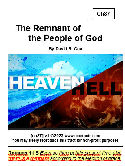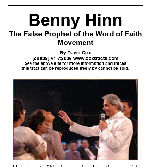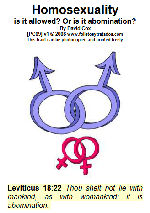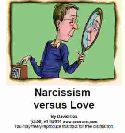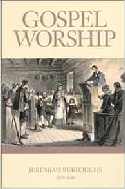Ads
As to the question, Are Anglicans considered Protestants?
By Pastor David Cox (Baptist Fundamentalist).
A narrow view of the term “protestant” is anybody protesting the Roman Catholic Church. Few “Protestants” would consider themselves “Protestants” because the term in itself has the idea that “we all began as Roman Catholics”. Personally, I hold to the belief that this is not the case.
How the Catholic Church Began
I am no expert on Church History, but from what I understand, the churches in the New Testament had no pope or central authority over them. They did use the resource of the Apostles until they all died off. Yes, that is fact, but God replaced the 12 Apostles with the New Testament Scriptures. In Acts, we see that the requirement to be one of Jesus’ twelve is that they had to have been present with Jesus from his baptism until his resurrection. This is because an “apostle” is simply a clerical term for a missionary, somebody which is charged with a mission to accomplish. Paul refers to the apostles (messengers, but the Greek word is apostolos) of the churches and they had no requirement of being a part of the eyewitnesses of Jesus’ ministry.
Once the church began to grow in different areas, each church took its independence very seriously. When some very powerful speaking pastors did very well, other lesser pastors fell under their influence, and thus the foundation of the Catholic church was born. Biblically, there is no primacy of Peter as the head of the church and without error, in fact, just the opposite. While the other apostles fled, Peter denied Christ, and afterward, Paul had to correct Peter on being carried away with the Judaizing influence in the church.
But although some churches banded together under bishops, there were always independents that refused this tendency. As time progressed, these groups strayed from sound doctrine. In the New Testament, we never see a bishop over any more than a single church, and Paul would probably “fit” the description much better of the first pope that Peter. But we see that the church at Corinth refused any authority to him, and apparently limited his visits and influence to what they officially permitted by giving him a letter of permission to come or to speak to their people. This speaks strongly of the individual church’s self-governance, and apparently, Paul submitted himself (though not happy) under their authority.
What is a Protestant?
A Protestant is supposedly anybody that rejects the Roman Catholic Church’s authority over them. Buddhists would be Protestants if we understand the Catholics. But Buddhists are not Protestants, because they have never been under the Roman Catholic authority in the first place. So technically, a “Protestant” is somebody that was under Rome’s authority and left it. That in itself would be a good thing, because Rome has false doctrine, incorrect sinful practices, and would be something to reject for any true Christian.
But understanding that Martin Luther WAS a Roman Catholic priest, he is a Protestant and Lutheranism is a Protestant religion. Baptists are not Protestants. Anglicans would be Protestants, but their rejection of Catholic error is not very apparent as they still have quite a number of Catholic inventions still being believed and practiced. The same can be said for modern Lutheranism.
So the short answer here is that yes, Anglicanism is Protestant, but did not take their rejection of Catholicism’s errors far enough, and being Protestant is not necessarily of any good in itself because there needs to be a total break, or better, having never been involved with Catholicism in the first place, such as the Baptist position.
If you see the image on this post, it has an Orthodox Priest, an Anglican priest and the Pope together. The Pope is asking forgiveness trying to reconcile these Protestant groups to Catholicism. That is normal in the thinking of these people. They were Catholics at one time, and broke away, and let’s get them back into the flock.
But Baptists and others were never in their flock to begin with, so that would be silly to even consider it.
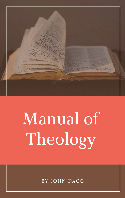
Dagg Manual of Theology (and links to this work in various other formats).
Dagg Manual of Theology (MySword for Android)
Dagg Manual of Theology (theWord Bible Format)
Dagg Manual of Theology (esword format)
Dagg Manual of Theology (PDF Format)

